Govt to Restructure Healthcare System in 2026, Aiming to End Bureaucratic Delays; President Muizzu Pairs Reform With Maamigili Development Push
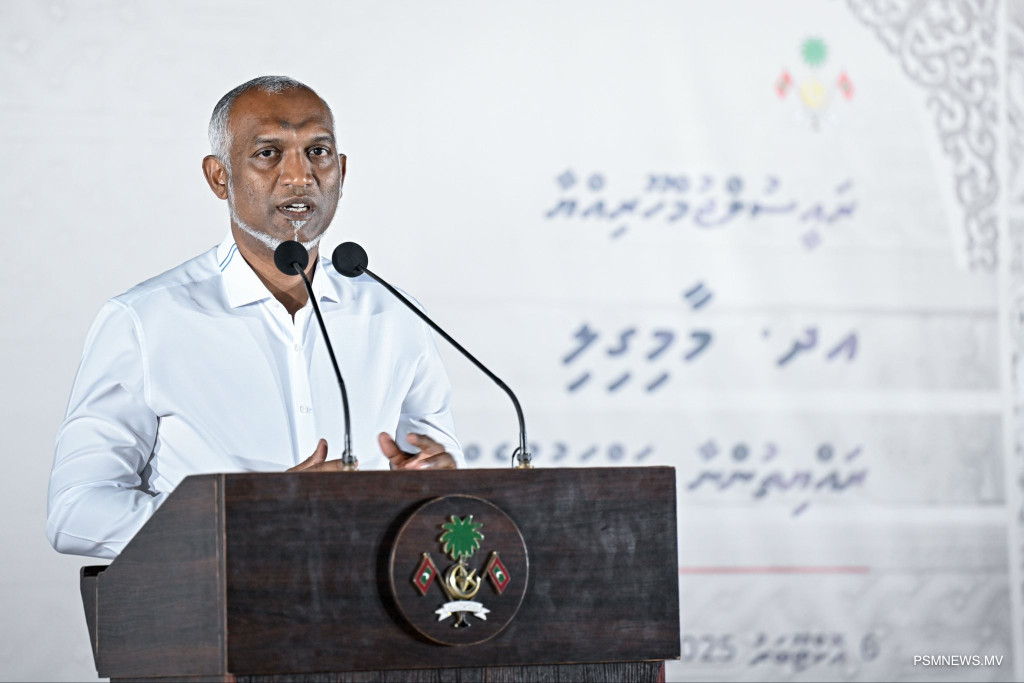
President Dr Mohamed Muizzu announced on Monday that the government will restructure its healthcare administration beginning in January 2026, granting hospitals and health centres direct authority to communicate with ministries as independent institutions.
The president made the announcement during a visit to Maamigili in Alifu Dhaalu Atoll, describing the reform as a decisive effort to dismantle bureaucratic layers that have long delayed the delivery of essential medical services.
A system long burdened by bureaucracy
Under the current structure, health facilities must route requests for medicines, staff, and other resources through regional or atoll hospitals before reaching government ministries. President Muizzu said this multi‑layered process has created persistent delays and inefficiencies.
From 1 January 2026, he said, every healthcare provider will operate as a distinct institution, empowered to deal directly with the Ministry of Health and the Ministry of Finance and Planning. The change, he added, would transform the process into an “easy transaction”.
He stressed that the reform will streamline procurement, accelerate staff approvals, and improve overall workflow. All technical and human resources required for the transition, he assured, will be in place before the end of this year.
Preparing the groundwork for reform
Work is already in progress to support the new system. Software development and staff training are underway, with dedicated personnel to be stationed both at local health centres and within central government institutions.
President Muizzu expressed confidence that these logistical and technical preparations would be completed within the year, allowing the decentralised system to launch alongside the 2026 state budget.
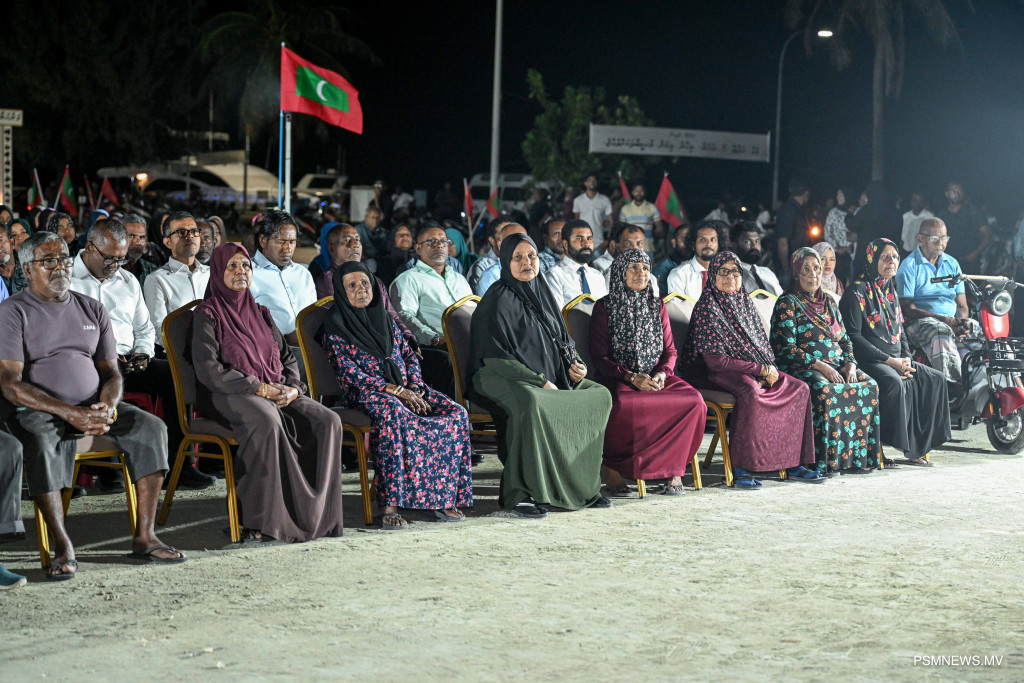
A new entity to resolve medicine shortages
The president also turned to one of the most chronic challenges in the health sector: shortages of essential medicines. He highlighted the establishment of the State Pharmaceutical and Medical Supply Corporation Limited, a new entity tasked with wholesale purchasing, importing, and distributing medical drugs, consumables, and equipment nationwide.
He assured residents that the corporation would provide a permanent solution to procurement difficulties that have long plagued the system.
Responding to community demands
Beyond healthcare, the president addressed one of the most frequent requests raised during his island visits. Each atoll, he confirmed, will be allocated a designated picnic island, available for community use and tourism in accordance with existing regulations. A cabinet paper formalising the initiative is being drafted.
Expanding higher education beyond the capital
The president also presided over the formalisation of a major educational initiative: the development of a regional campus for the Islamic University of Maldives (IUM) in Maamigili. The contract for the project has been awarded to the Road Development Corporation (RDC). The agreement was signed during a public gathering, with Vice Chancellor Dr Ali Zahir representing IUM and Managing Director Ibrahim Nazeem signing on behalf of RDC.
The Maamigili Island Council has allocated a 22,000‑square‑foot plot of land for the campus, which will include an administrative office, a library, five classrooms, and a multi‑purpose seminar hall. Plans also provide for a student centre known as a Dhanaal, a canteen, recreation facilities, and staff accommodation. The project is financed under the Public Sector Investment Programme (PSIP) for the current year and is intended to expand tertiary education opportunities beyond the capital.
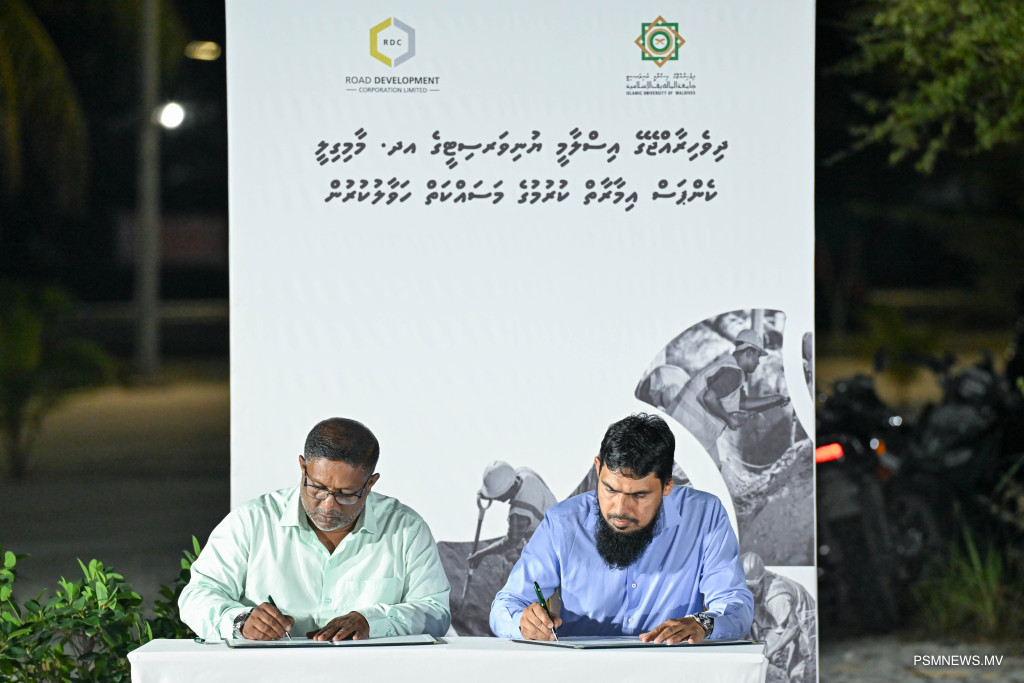
Positioning Maamigili as a development hub
In his remarks, President Muizzu underscored Maamigili’s role as a model for population management and development consolidation. He confirmed that the Maamigili School upgrading project is scheduled for completion by the 2026 academic year.
Looking ahead, he announced that work will begin on a 30‑bed hospital, a new branch of the Bank of Maldives (BML), and a road development project in 2026.
He also revealed that ID card and passport issuance services will commence on the island before the end of October. Waste management responsibilities have been assigned to the Waste Management Corporation (WAMCO), with services expected to begin this year. Plans also include the establishment of a public works unit, a housing project, and the development of a sports complex under the 2026 state budget.
Local leaders press for urgent needs
As part of his visit, President Muizzu met with members of the Maamigili Island Council, the Women’s Development Committee, and local institutional leaders to discuss development priorities.
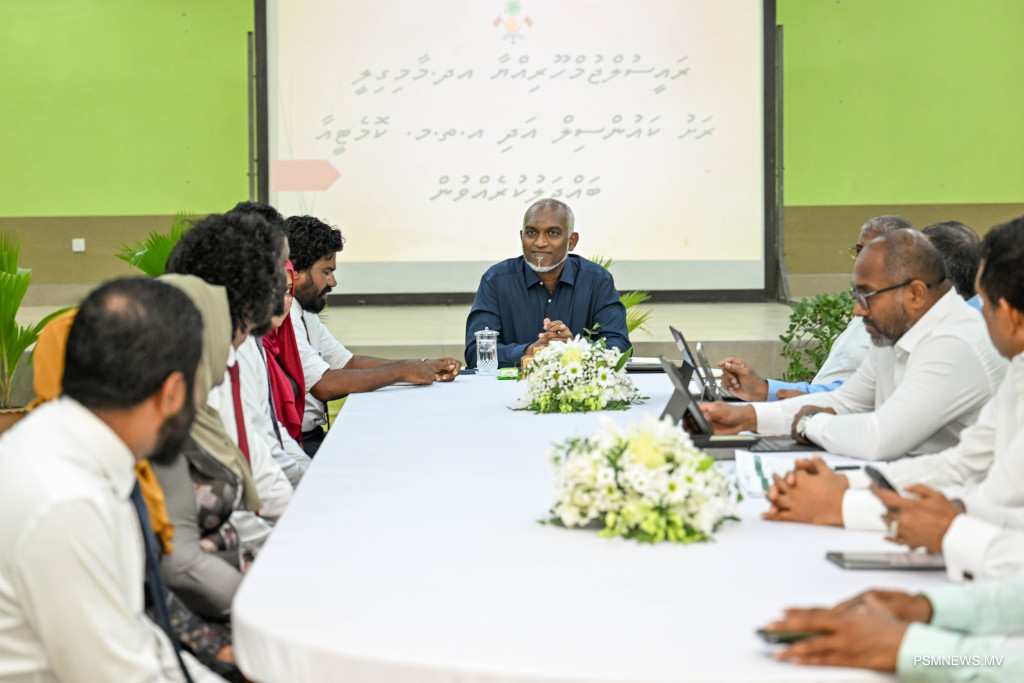
Council members raised concerns over delays in road development, the need for effective waste management, and difficulties in utilising the island’s harbour. They also requested the installation of fish aggregation devices (FADs) to support youth sports fishing, additional staff for the health centre, and expanded facilities for the local school.
Govt launches USD 6.81 million hospital project in Mamigili
Construction also began on a 30-bed hospital in Mamigili, inaugurated during President Muizzu’s visit to the island. The president attended the groundbreaking ceremony, underscoring the government’s commitment to strengthening health infrastructure nationwide.
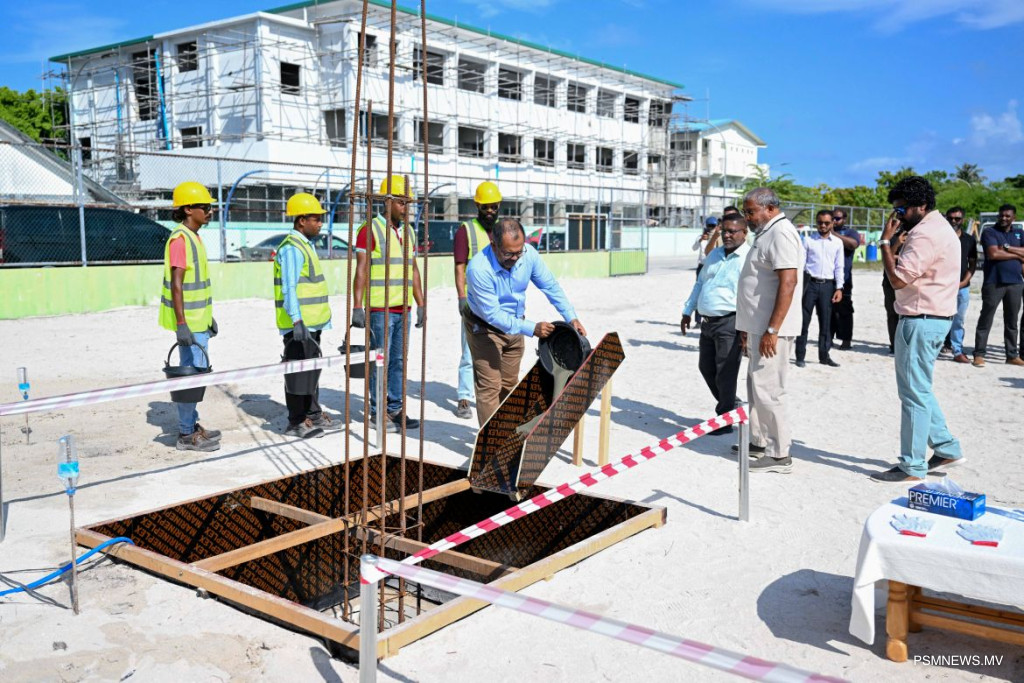
The project, undertaken by the Road Development Corporation (RDC), is intended to expand access to medical care for residents of Mamigili and neighbouring communities. At the inauguration, senior officials joined the president in launching the initiative. Among them were Minister of Finance and Planning Moosa Zameer, Maamigili Member of Parliament Qasim Ibrahim, and RDC Managing Director Ibrahim Nazeem.
Government statements confirmed that the facility will provide a range of services upon completion, including specialised dialysis treatment. The hospital, a government-led initiative, carries an estimated cost of USD 6.81 million. A defined construction schedule has been set, with the project expected to be completed within 540 days. Once operational, the hospital is projected to play a central role in improving healthcare delivery in the region.
